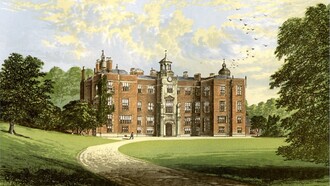Nestled within the heart of Peshawar, Pakistan, lies a place that resonates with the echoes of captivating narratives and age-old traditions—the Qissa Khwani Bazaar, commonly known as the Bazaar of Storytellers. For centuries now, the Bazaar of Storytellers has been at the heart of Peshawar's life. The name originates from a tradition of traders from central Asia where they mingled in the tea houses to exchange stories. The term Bazaar originates from Persian, where it referred to a town's public market district. This bustling marketplace is not just a physical location; it is a living testament to the art of storytelling that has woven itself into the cultural fabric of this region.
The tradition of storytelling is an integral part of human heritage, a way to pass down wisdom, entertain, and preserve history. Peshawar, with its rich history and diverse cultural influences, of Afghans, Hindus SIkhs found a unique way to celebrate this tradition. The Qissa Khwani Bazaar, with its narrow winding lanes and vibrant atmosphere, becomes a stage where stories come to life.
In the past, when forms of entertainment were limited, storytelling filled the void. As the sun set and the day's activities wound down, people from all walks of life would gather in the hujras—traditional guesthouses—not only to listen to the tales from other parts of world but it had a political and social impression spun by skilled storytellers. These storytellers, known as "Dastaan Sara," were revered for their ability to transport listeners to distant lands and eras through their words.
The Qissa Khwani Bazaar became a sanctuary for these storytellers to showcase their performance craft. As twilight descended, the bazaar would transform into a realm of wonder, where the flickering light of oil lamps illuminated eager faces and curious eyes. The air would be filled with an electric anticipation as the Dastaan Sara took centre stage, their voices weaving intricate tapestries of legends, myths, and histories.
The tales told in the Qissa Khwani Bazaar ranged from folkloric sagas of heroes and heroines to anecdotes of love, bravery, and wisdom. The bazaar's name itself, which translates to "Marketplace of Storytellers," pays homage to this tradition. Traders, travellers, and locals alike would gather, united by their shared love for stories. It wasn't merely about entertainment; it was about the sense of community that formed around these narratives.
This enchanting tradition reached its zenith with the collaborative efforts of storytellers known as "Ghad" and "Nara" in Pashto. These storytellers would often join forces to narrate complex and immersive tales that spanned across multiple nights. The Qissa Khwani Bazaar became a hub of cultural exchange, where tales from distant lands blended seamlessly with local legends, creating a tapestry of narratives that transcended borders.
Today, the echoes of the Dastaan Sara continue to resonate. While the landscape might have transformed with modernization, the spirit of storytelling remains alive. Singers in Peshawar continue the legacy of their predecessors, carrying forward the torch of oral tradition. The Qissa Khwani Bazaar, despite the changing times, still stands as a testament to the power of narratives in shaping a community's identity and fostering a sense of togetherness.
In conclusion, the Qissa Khwani Bazaar stands as a cultural gem in Peshawar, embodying the spirit of storytelling that has transcended generations. Its winding alleys and bustling ambiance serve as a reminder that while times change, the allure of a well-told story remains timeless. As long as there are voices to share, the legacy of the Qissa Khwani Bazaar will continue to weave its magic, connecting the past with the present and ensuring that the art of storytelling never fades away.















